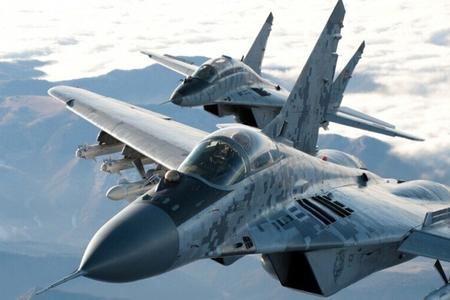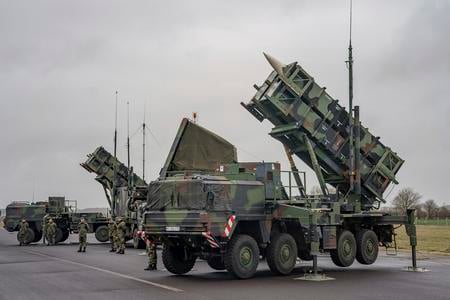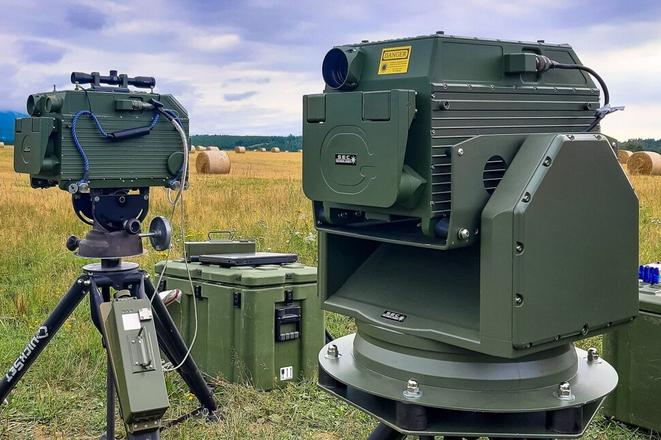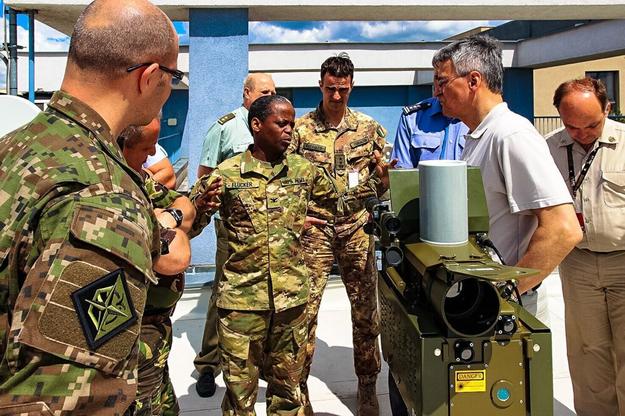Most countries have committed themselves to not produce or use chemical weapons, and pledged to dispose of old chemical weapons. However, this is only a formal promise.
That is why countries are looking for ways to defend themselves against them.That is why countries are looking for ways to defend themselves against them.
SEC Technologies
Founded: 2014
City: Liptovský Mikuláš
Founders: Michal Šimko, Martin Vaľovský, Jiří Viceník's team
Number of employees: 25
Sales (2021): €1 million
Chemical warfare agents do not damage buildings, roads or bridges, but they are a threat in terms of their effect on people. "Even a very small amount is enough to kill an adult," said Michal Šimko, founder and CEO of the Slovak company SEC Technologies.
His company, which is based in Liptovský Mikuláš, central Slovakia, is developing a device that allows the presence of chemicals in the air to be remotely detected - up to a distance of six kilometres. Falcon, as the detector is called, also detects harmful emissions from industrial production or carbon dioxide, which is feared for its destructive effect on the Earth's climate.
Although the technology originated in the military environment, Šimko's company wants to focus primarily on its use in environmental protection.
Key know-how
The technology used by Falcon builds on the results of a task given to the development team at the Military Technical Institute in Liptovský Mikuláš in the late eighties.
Military developers started from zero, invented laser hardware and an analytical algorithm. They created a prototype of the detector and tested its deployment in the conditions of the Slovak army.

However, in 2009, the institute ceased to exist and its employees were looking for a new job or started a business. The development team continued to develop its technology, but a more fundamental impulse arose after Šimko and his partner Martin Vaľovský joined the team seven years ago.
"Our developers are highly technically gifted. We, in turn, provided our experience from sales and global business, as well as the desire to conquer new markets," the CEO said.
Like other Slovak startups, SEC Technologies is facing strong foreign competition. Bruker, Bertin and MESH are all big companies whose business is based on remote gas detection.
Nevertheless, Šimko claims that they have a real chance to succeed. He argues that the Falcon device is the only active detector on the market; it is based on a different technology than the one used by the firm's competition, which makes it 30 times and in some cases up to 100 times more sensitive.

"We are the only ones who use lasers, which we use to 'illuminate' the environment. It's like taking pictures at night without a flash and with no flash. We have the flash," he explained.
According to him, lasers installed in the Falcon detector are the key know-how of his company.
No plan to leave Slovakia
Falcon's functionality and reliability in gas detection has been confirmed by independent reviews from the United States, Europe, Southeast Asia and the Middle East.
In addition to the military, the company sees potential customers in other sectors as well. One of them is civil protection forces, such as firefighters and police, who often need to detect the presence of dangerous gases.
And to a large extent, they would like to focus on the environmental sector. Whether it is government agencies monitoring the state of the environment or industrial companies that monitor the leakage of pollutants from their factories.
"Our goal is to become a world leader in chemical detection in any environment that can occur on the globe," added Šimko.
Last February, SEC Technologies received a relatively large external investment. The platform of private investors Crowdberry and Venture to Future Fund, backed by the state-owned Slovak Investment Holding, invested €3 million in the company.
Despite the fact that attracting quality scientists to central Slovakia is difficult, the company does not plan to move anywhere else.
"We are a Slovak company, we want to stay in Slovakia and we want to create added value here," he concluded.
© Index



